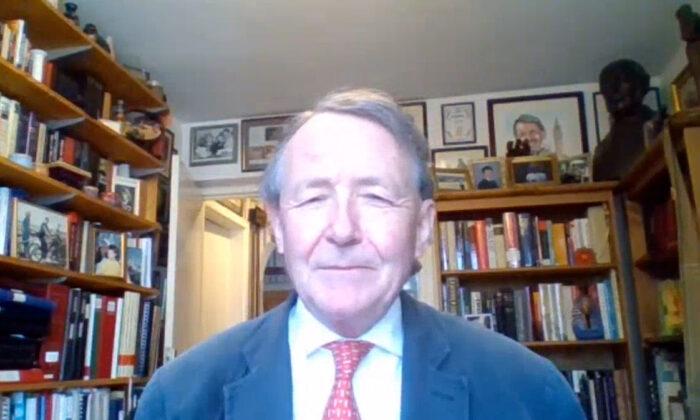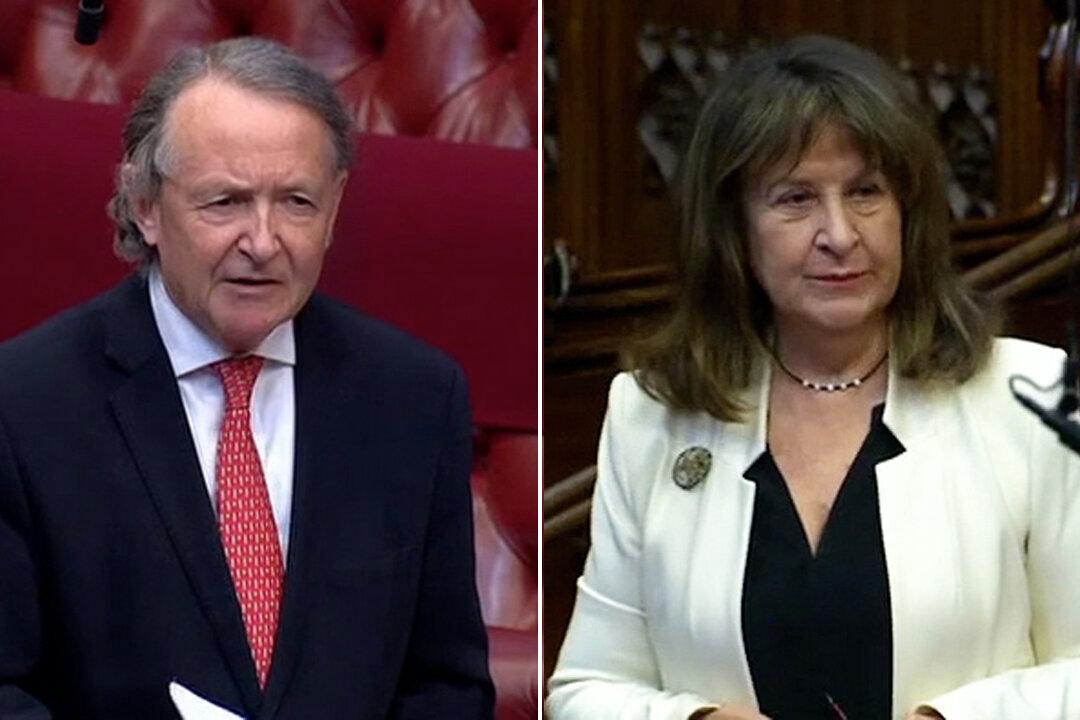A group of UK peers are pushing to set up a committee of former judges to determine whether there is a genocide taking place in China’s Xinjiang region, after the government prevented them from writing into law a Parliamentary Judicial Committee that can rule on genocide.
The best people to rule on genocide are “judges who are well equipped and skilled in assessing evidence in an independent way,” Baroness Helena Kennedy, director of the International Bar Association’s Human Rights Institute, told NTD on Friday.
“We were very keen that our own High Courts might be involved, but government is not very keen on that,” she added, referring to the government’s opposition to a “genocide amendment” to the Trade Bill, which originally sought to give UK courts power to rule on genocide.
“And what we’ve suggested as an alternative is that a committee of the House of Lords is created, on which senior retired judges would sit and could fulfil that function of determination as to whether there is indeed a genocide in progress in Xinjiang province, and whether the evidential thresholds have been met,” Kennedy said.
“We’re hoping that the government might agree.”

Benedict Rogers, deputy chair of the Conservative Party Human Rights Commission (CPHRC), said that the setting up of such a committee would be a “very welcome move.”
“There are many very eminent retired judges in the House of Lords, who are some of the most experienced judges in the world,” Rogers told The Epoch Times on Friday.
“And the House of Lords would be entirely within its rights to form such a committee, and that at least will provide a legal expertise behind a genocide determination,” he added.
Former Conservative Party leader Sir Iain Duncan Smith has also welcomed the idea.
Genocide Amendment
Peers have pointed out that “no British government in modern history have ever declared a genocide while it was taking place” because it’s been the long-standing position of successive UK governments that only a “competent court” can rule on genocide, yet the international courts are paralysed due to Russia and China’s veto power.Lord David Alton proposed the “genocide amendment” last year to the UK’s post-Brexit Trade Bill, in order to prevent the UK from entering trade deals with genocidal countries.

After three rounds of negotiations and compromises, MPs voted on March 22 on two competing versions of the amendment: the government’s version, which designates a responsible parliamentary committee to examine evidence on alleged genocide and push the government to act on such evidence; and the Alton version, which would set up a Parliamentary Judicial Committee with ex-judges to do the job.
“That could, of course, from the Crossbench Members of the other House, include Members of the House of Lords with former judicial experience, but they would be there as members of the House, not as former judges and that is their proper constitutional position,” he said.
Alton replied by saying that a “Joint Committee on Human Rights is not a bad precedent, were we to go down that route,” while keeping other options open.
“In line with what the House of Commons decided yesterday, our House could, if it wished, establish its own ad hoc committee comprising former judges who now sit in the Lords,” he said.
“To determine precisely what a genocide is will take time, expertise, and great knowledge of the law—things that this House is uniquely equipped to contribute. Such a committee should urgently evaluate the evidence of the genocide and atrocity crimes being committed against the Uyghurs in Xinjiang,” Alton said.
Sanctions
Hours before the last Commons vote on the genocide amendment, the UK government announced sanctions against four Chinese officials over the alleged human rights abuses of Uyghur Muslims, but stopped short at calling the abuses “genocide,” a declaration that has already been made by several countries, including the United States, Canada, and the Netherlands.In retaliation to the UK’s sanctions, the Chinese regime on Friday sanctioned nine British individuals and four entities for their stances on Xinjiang, including Alton, Kennedy, Duncan Smith, and the CPHRC, which Rogers chairs.

Prime Minister Boris Johnson on Saturday met with five of the parliamentarians on the sanctions list, and expressed his solidarity with them.
“This morning I spoke with some of those who have been shining a light on the gross human rights violations being perpetrated against Uyghur Muslims,” Johnson wrote on Twitter. “I stand firmly with them and the other British citizens sanctioned by China.”





